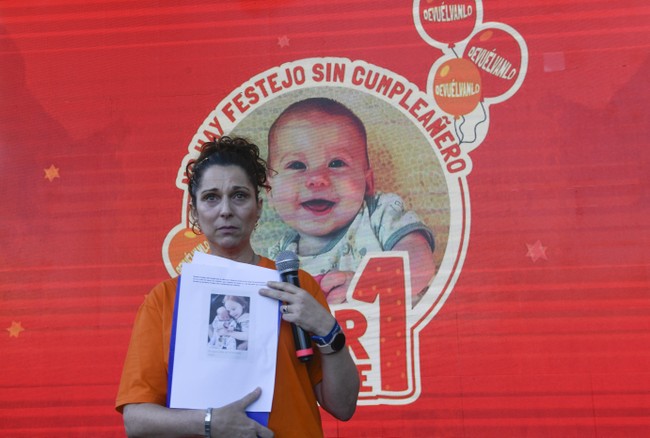Dramatic Fate of the Bibas Family Amid Hostage Talks
The ongoing negotiations between Israel and Hamas have intensified, aiming to resolve the distressing hostage crisis involving the Bibas family. Speculations about their fate add urgency.
Published February 20, 2025 - 00:02am

Image recovered from redstate.com
The recent escalation in negotiations between Israel and Hamas has once again turned the spotlight on the Bibas family, who have become unwitting symbols of the Israeli hostages taken by Hamas. The traumatic events began during the assault on Kibbuz Nir Oz in southern Israel when the young family was abducted by Hamas militants. This harrowing incident unfolded amidst a broader conflict, casting a long shadow over regional stability and prompting international concern.
Hamas has declared its intent to return the bodies of four deceased hostages, including members of the Bibas family, in a move that Israel and international observers hope will pave the way for a more comprehensive resolution. The impending handover is part of a larger negotiation framework aimed at exchanging hostages and easing tensions in the region. Mediators from Egypt have been instrumental in orchestrating the discussions, attempting to bridge the deep divide between the two sides.
President Donald Trump's administration has reportedly pressured Hamas to accelerate its hostage release process, warning of severe consequences if delays persist. This external pressure underscores the complexities of the geopolitical landscape, where international politics intersect directly with humanitarian concerns. Israel, under Prime Minister Netanyahu's leadership, has remained steadfast in its commitment to securing the release of all captives held by Hamas.
Amid these tense negotiations, Yarden Bibas, the father of the family, was released earlier this year. His liberation was bittersweet, tainted by the absence of his wife Shiri and their young sons, Ariel and Kfir. Since returning home, Yarden has become a beacon of hope for those clinging to the possibility that his family might still be alive despite unconfirmed reports of their demise during an Israeli offensive in Gaza. These claims by Hamas remain unverified, adding layers of uncertainty and anguish to an already heartbreaking situation.
Further complicating matters is the broader backdrop of the Israeli-Palestinian conflict, where longstanding grievances and recent escalations compound the difficulty of achieving a lasting peace. The contentious nature of these hostilities has galvanized international attention, with the United States playing a significant role in guiding the diplomatic efforts. Secretary of State Rubio's recent visit to Israel highlighted America's vested interest in mediating an end to this humanitarian crisis, echoing the broader narratives surrounding international diplomacy and regional security.
As the Bibas family's fate hangs in a precarious balance, their situation highlights the personal tragedies often obscured by geopolitical headlines. It draws attention to the profound human cost of political conflicts, as innocent lives hang in the balance of high-stakes negotiations. The international community continues to watch closely, hopeful for a resolution that emphasizes humanity and compassion amidst political tumult. Meanwhile, the people of Israel and Gaza await the next chapter in this ongoing saga, fervently hoping for peace and reconciliation.







